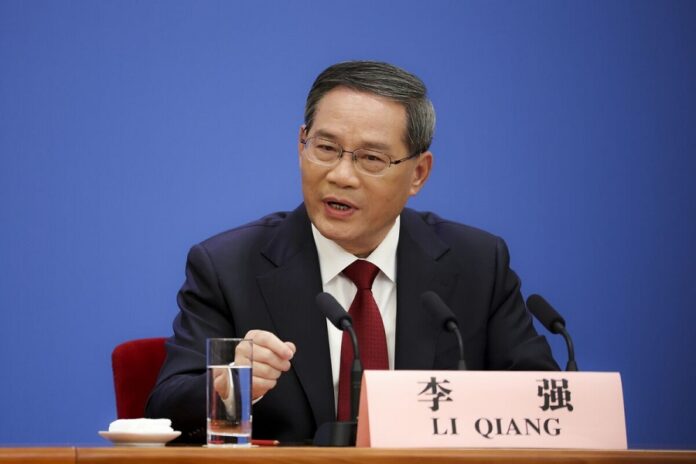New Chinese Premier Li Qiang touted trade ties with the US and questioned the need for decoupling, a sign that Beijing may be trying to put a floor under simmering tensions with Washington, according to Bloomberg.
Li said China and the US were “closely intertwined economically,” adding that both nations benefited from each other’s development and pointing to last year’s two-way trade, which climbed to a record.
“I know that in recent years, some in the United States have been trumpeting the idea of decoupling with China and sometimes it could become quite a hot topic in the media, but I wonder how many people can truly benefit from this kind of hype,” Li said.
The comments provide some optimism that relations between the world’s two biggest economies won’t fall further. Ties soured last month when the US shot down a balloon that it said had been spying. China called that an overreaction, saying the device was collecting weather data when it was blown off course.
Li’s comments contrast with remarks by President Xi Jinping a week ago, when he sought to rally China’s private sector to help overcome “containment” by the US and other countries — rare direct criticism of the nation’s biggest trading partner.
Shortly after that, then ew foreign minister, Qin Gang, used his first major press briefing to declare that US competition “means to contain and suppress China in all respects,” comments that come as the Biden administration moves to cut China off from advanced technology.
In his remarks on Monday, Li also referenced Beijing’s view that Washington is trying to limit China’s progress, though his language wasn’t as harsh and that used by Xi and Qin.
Li said “China and the United States can and must cooperate,” adding that “encirclement and suppression are in no one’s interest.”
Li, who was Communist Party chief of Shanghai during the months-long covid lockdown last year, said that he’s had a lot of experience talking with executives at multinationals, including many from the US.
“They all told me that they were optimistic about the future of Shanghai and China,” he said. “They all hope to see cooperation between all countries in the world.”
Earlier this month, a report from the American Chamber of Commerce in China said that for the first time in about 25 years the Asian nation was not a top three investment priority for a majority of US firms, as geopolitical tensions and domestic economic issues drive businesses to increasingly focus elsewhere.


